Isabelle is a remote freelancer and online translator from France, who has lived the digital nomad lifestyle for 8+ years. In this interview we chat about what it was like to become a freelancer and digital nomad in France at a time when nobody did such things, the many incantations her career and lifestyle have taken, and Isabelle also shares lots of amazing practical advice about selling everything and digging into this lifestyle.
Other Amazing Interviews:
How to Create a Location Independent Lifestyle, with Jason Moore
21 Years of Full-Time Travel, with Wandering Earl, founder of Remote Club
Getting Into (and Out Of) Travel Writing and Full-Time Travel, With Leif Pettersen
Jump right into my Awesome Interview Series videos on YouTube here – and please give it a thumbs up, leave comments and subscribe!
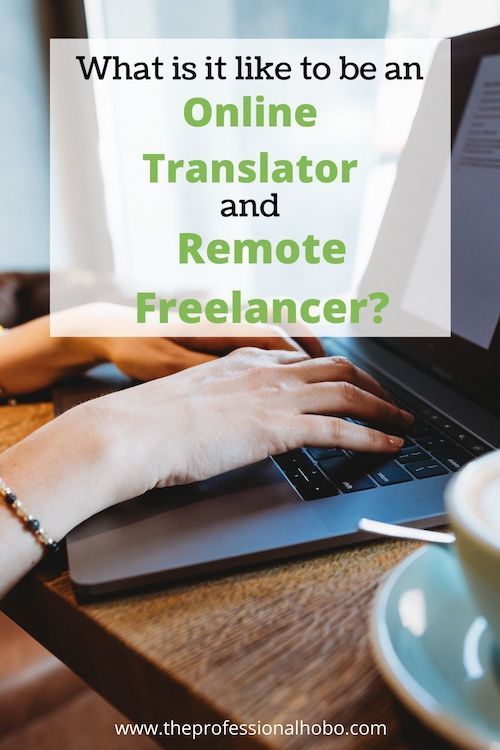
Born in the Parisian suburbs, Isabelle (of Aventures en Conscience) discovered the joys of alternative travel as a teenager while following festivals across Europe. She learned how to hitchhike, live in a truck, camp, survive on a shoestring and adapt fast. In the early 2000s, she studied languages in Berlin, and then journalism in London where she met her first digital nomads. Fascinated by these pioneers, she set up her online business and then went on the road with no return date. She worked from the rooftops of Kathmandu to the benches of the Trans-Siberian Railway. Today, Isabelle is an online translator, guide-book author, and travel guide for anxious people.
Watch Our Interview Here!
Click here to watch our full interview on YouTube (and please give it a thumbs up so other people can discover it!), or watch below:
Becoming a Digital Nomad
When Isabelle adopted a digital nomad and online freelance work lifestyle, that sort of thing simply wasn’t done in France, and so in fact, she reached out to me for a consultation to help her get started and hit the road smartly! (That’s something I do, by the way… reach out to me if you’d like a free consultation).
Here are a few of the points we touch upon:
- What it was like to become a digital nomad in France, where she didn’t know many digital nomads or even freelancers.
- How France has since changed the recognition and treatment of freelancers (eg: they can get paid maternity leave now).
- How she was technically homeless as a student in Berlin, and what that was like.
- Pontification over what exactly it is to be a digital nomad, and the intersection between homelessness and the digital nomad lifestyle.
- Her flirtation with “normal life” after being a student, and how the idea of the having same job and having to stay put forever was impossible to comprehend.
- How her experience as a journalist as well as an expat in various countries helped inform her decision to become a digital nomad.
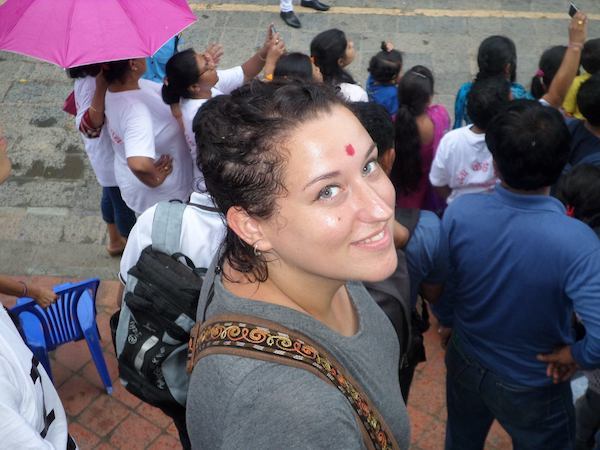
Developing a Career as an Online Translator and Freelance Writer
When Isabelle consulted with me (back in 2013), I warned her that developing a career as a writer – one that is solid enough to earn a sustainable full-time living – is a tough slog, and I said if she had any other skills she could use to earn money as a complement to her writing, she would be well advised to do so. She listened! She developed a career as an online translator (while continuing to freelance with her writing). Here’s some of the great points she covered:
- Working as an online translator and what it entails (hint: there’s more to it than you might think).
- Where to find online translation gigs.
- The work she used to do as an SEO consultant, and how dramatically the industry has shifted and changed over the years.
- The feast/famine element to freelance writing, and how she finds gigs.
- The benefit of developing a repertoire of regular clients.
- What it was like to update a Lonely Planet guidebook (Which is now out: La bible du grand voyageur).
- How having ADHD has served her over the years in a desire to constantly learn new things and not necessarily need the sort of safety net others require.
- The pandemic was actually kind of “business as usual” given that she was already a remote freelancer.
- Burnout is probably an inevitable part of the learning curve to working remotely, regardless of travel lifestyle.
Stuff – and Our Relationship to It
Isabelle got rid of everything (or almost everything) when she hit the road to become a digital nomad, and while she sort of regrets it, she ironically admits that she would still do the same thing all over again if she had a “re-do”. I also share my own experience of getting rid of everything, what I chose to keep, and what happened when I revisited those belongings years later. Here is Isabelle’s very zen approach to stuff:
- The comfort that having certain things provides, and why she sort of regrets selling everything.
- The things she regrets getting rid of, and the irony that she would still get rid of them today.
- Her Marie Kondo-esque way of getting rid of things now, and why it needs to be a slow process.
- Balancing the notion of impermanence with liking beautiful things.
- Why she takes pictures of things she likes.
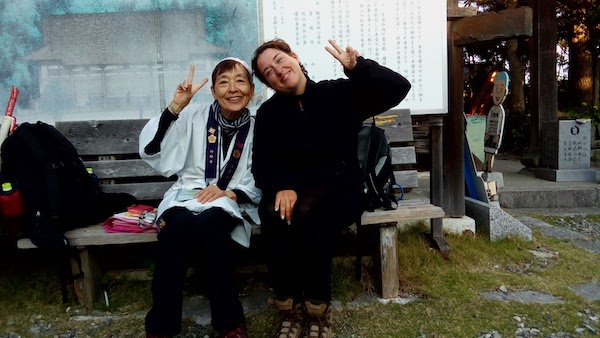
Balancing the Travel Lifestyle with Online Work
This inevitably works its way into most conversations I have with people who work remotely abroad, because it’s a difficult balancing act, and everybody approaches it differently. Here’s what Isabelle learned:
- Her routine doesn’t really change when at home vs. traveling, and how that can be helpful and grounding.
- Traveling whilst working remotely and not having any colleagues is challenging.
- The importance of a strong set of boundaries between what you consider “work” and what you consider “play”.
- The importance of stipulating – to the point of writing down – your own “rules of engagement”.
- Learning your personal work style and the best environment for you (eg: needing the stimulus of a cafe or conversely, noise-canceling headphones).
- The challenge of remote work as an introvert and some ways to cope with it (eg: turning notifications off when you’re off the clock).
Travel and Life Lessons Learned Abroad
Isabelle dropped some serious nuggets of wisdom from her travel experience! Here are some of her philosophies that we discussed:
- If there are things you struggle with at home, expect them to get harder on the road.
- Why her backpack is always packed, and how that’s comforting.
- The difference between cultivating new relationships abroad and nurturing longstanding relationships with people back home.
- Expect to learn things about yourself that weren’t problematic when you were in the comfort of home but are problematic abroad.
- The competitive nature among travelers and backpackers (like country counting).
- How forcing yourself to adapt and discovering that you can’t may lead to big challenges.
- What to do if you’re still not “feeling it” in a place after a week.
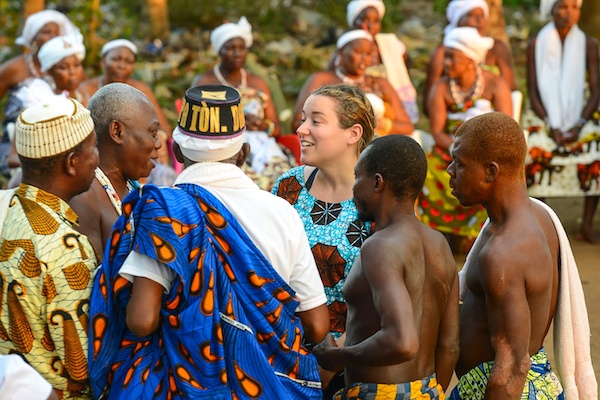
What Home is – Literally and Figuratively
A lot of long-term or full-time travelers employ cliches along the lines of “home is wherever I lay my head at night”, or “home is my backpack”. I don’t begrudge them these platitudes; I used to say such things myself. I think the reality is that when you travel full-time for a while, “home” becomes a nebulous concept, and we have a chance to delve deep into what provides each of us with a deep sense of home. Here’s what Isabelle said on this topic:
- What “Home” is (or rather, “who” as opposed to “what” or “where”).
- The contextual baseline of long-term family and friends and how important it is even if (heck, especially if) you live abroad.
- How home is also kind of her computer.
- Why she could never be a nomad forever (join the club, sister – I agree, and so does Sherry Ott and Gary Arndt).
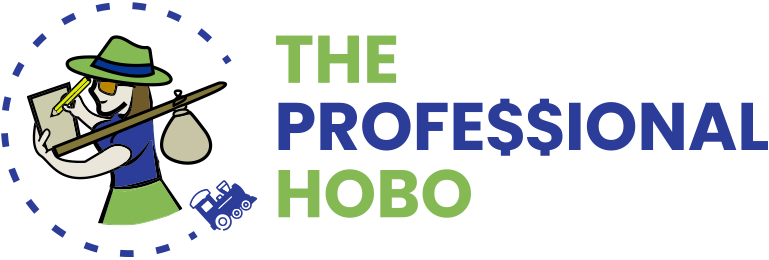
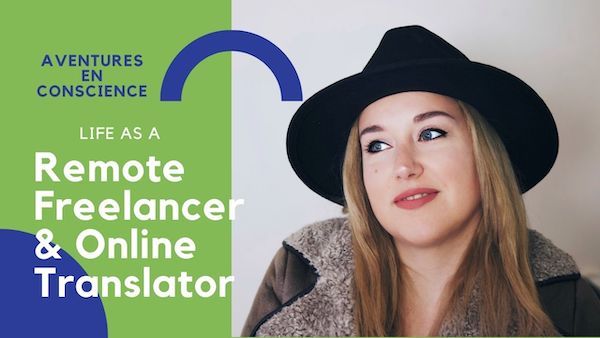

Isabelle has lived an amazing life, Nora. Those incantations makes life not only interesting, but worthy. We all have immense potential locked within. For whatever reason, circling the globe for an extended time both forces us to face fears and also broadens our perspective enough to create a series of shifts, changes and transformations guaranteed to shock the ego over time. Being a digital nomad for a decade now revealed versions of me and skills that I am astounded to have discovered from ego, but, that have always been there from my heart, waiting to surface.
Ryan
Great reflections, Ryan! Thanks for sharing. I totally agree.
Thanks, Nora for these amazing tips, I have just started my journey. I would like to be a freelance translator to increase my income, I’ve already had a few experiences as an interpreter, I speak fluently Portuguese (Brazil) and English, Italian and Spanish as well though I’m not ready to work with those languages yet, but I feel more than ready to work with Portuguese and English.
That’s great, Sean! If you’re looking for help with the business end of being a virtual translator, I highly recommend connecting with Hannah Dixon: https://www.theprofessionalhobo.com/remote-careers-va-ethics-hannah-dixon-of-digital-nomad-kit/
Thanks a lot, Nora
I loved watching the interview. You are privileged if your routine does not change when you are traveling.